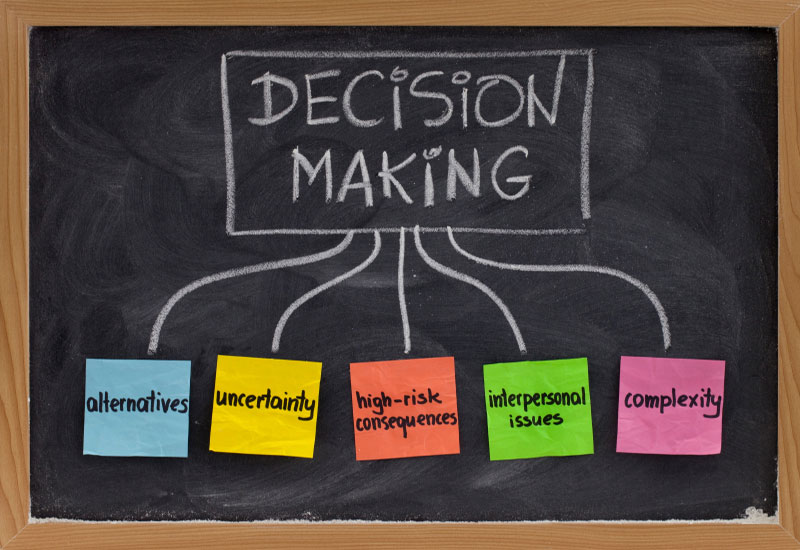In today's rapid and intricate world, the ability to make effective decisions has never been more important. Whether it is in our personal lives, work settings, or in emergencies, the decisions we make determine our future and affect those around us. Yet, many find themselves burdened by the sheer volume of options, uncertainties, and possible consequences associated with each choice. This complexity can lead to decision fatigue, analysis paralysis, or even poor choices made in a hurry.
Perfecting the art of effective decision-making involves honing particular skills and applying tested techniques that enhance our judgment. From learning how to analyze choices efficiently to developing emotional intelligence, the journey to being a confident decision-maker requires self-knowledge and a readiness to adapt. In this article, we will discuss various strategies for enhancing decision-making skills, the mental processes that underpins our choices, and how to preserve mental clarity even in pressure. By grasping the nuances of decision-making, we can empower ourselves to handle life's challenges with increased assurance and insight.
Strategies for Intelligent Decision-Making
Effective decision-making often requires a combination of critical thinking and emotional intelligence. One approach to improve your decision-making skills is to employ decision-making frameworks that have shown successful outcomes across different contexts. For example, methods like SWOT analysis, which entails assessing advantages, disadvantages, prospects, and challenges, can help you systematically evaluate alternatives. Utilizing such frameworks encourages a structured approach, allowing you to make educated choices even when faced with complex situations.
Another important technique is developing the ability to evaluate alternatives meticulously. This entails assessing the potential outcomes of each option and understanding the implications they may have. To do this properly, develop a pros and cons list for every significant decision. Not only does this aid clarify your thoughts, but it also assists in seeing the consequences of each choice, which can significantly diminish the feeling of being overawed. Knowing how to examine alternatives can lead to more confident and clear decisions.
Lastly, enhancing emotional intelligence is vital for intelligent decision-making. Being aware of your emotions and understanding how they affect your choices can boost your ability to make good decisions, especially under stress. Practicing mindfulness can help you stay grounded, allowing you to pause and evaluate conditions considerately rather than reacting impulsively. By combining emotional awareness with rational analysis, you can develop a balanced decision-making process that leads to superior outcomes.
The Role of Gut Feeling and Feelings
Gut feeling often plays a critical role in decision-making, especially in cases where time is limited or the options are complicated. This gut feeling is shaped by previous experiences and subconscious processing, allowing individuals to make rapid assessments without needing to conduct thorough analysis. Many successful leaders and high performers rely on their intuition to guide them through difficult decisions, recognizing that their instinct can be informed by a lifetime of learning. This intuitive feeling can be a powerful tool that enhances analytical thinking.
However, emotions also significantly affect decision-making. While emotions can provide valuable signals about personal values and priorities, they can also hinder judgment if not managed effectively. Emotional awareness becomes crucial in recognizing these feelings, allowing individuals to harness the positive aspects of feelings while diminishing the downsides of hasty choices driven by anxiety. Balancing emotion with logical reasoning can improve the decision-making process, ensuring that choices are consistent with both individual and moral standards.
Additionally, merging instinct and feelings into decision-making requires practice and introspection. By recognizing website play, individuals can develop a well-rounded approach to their choices. Training oneself to pause, consider, and assess the emotional undertones of a decision can create insight and certainty. This combination of gut feeling and emotional insight helps individuals navigate complexities more effectively, leading to smarter, well-rounded decisions in both individual and work-related contexts.

Navigating Choice Obstacles
Choosing decisions in a challenging world often presents multiple barriers that can obstruct our power to decide wisely. One significant obstacle is the fear of taking the wrong choice. This anxiety can lead to inertia by overthinking, where individuals get so overwhelmed by options that they find it difficult to make any decision at all. To combat this, it's important to embrace a perspective focused on growth rather than excellence. Accepting the concept that every choice is an chance for growth can help reduce the pressure and encourage proactive choices.
Another frequent hurdle is information overload, which happens when individuals are faced with too much information at once. This can lead to confusion and poor choices. To overcome this, utilizing awareness can be highly effective. Mindful techniques help clear the mind and promote mental clarity, allowing individuals to concentrate on the essential factors important for their choice. Taking the moment to stop, reflect, and prioritize options can simplify the choice process, leading for more effective results.
Furthermore, peer influences can confound the decision-making process. Peer pressure and the anxiety of judgment can lead individuals to align with group opinions rather than following their own intuition. To tackle this obstacle, developing emotional intelligence is crucial. Developing awareness of oneself about one's feelings and understanding the dynamics of group interactions can enable individuals to take choices in accordance with their values. By strengthening personal beliefs and practicing confidence, one can manage external pressures effectively, resulting in more authentic and fulfilling choices.
